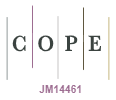Pauperization, Consumerism, Superstitions And Social Pedagogy
DOI:
https://doi.org/10.5585/eccos.n56.11504Keywords:
Alienation, Scientific education, Pseudoscience, SuperstitionsAbstract
This essay seeks to answer a threefold question: How can the social pedagogy react to 1) the growing “precariat” or pauperization threatening the workers of all the world, 2) to the consumerist alienation promoted by the powerful publicity paid by international capitalism, 3) to other forms of alienation such as pseudoscience and multiple superstitions, phenomena scattered all over the world in different forms? Supported by different writers (Standing, Marcuse, Bauman, Sagan, Popper) we propose that the school, the media and social organizations (linked to local official organizations or associations) should promote a fundamental reflection on the pauperization threatening mankind and on the atmosphere of consumerism promoted by the forces of the globalized market. But it is imperative these same agencies of social pedagogy promote the debate about pseudoscience and multiple forms of superstition so as to develop in our society a critical awareness of these forms of alienation and access to a scientifically based view on history of the mankind and of the universe.
Downloads
References
ALLÈGRE, Claude. Um pouco de ciência para todos. Lisboa: Gradiva, 2005.
APPLE, Michael; BEANE, James. Democratic schools. 2nd edition. Portsmouth, NH: Hei- nemann, 2007.
BAUMAN, Zigmunt. A arte da vida. Rio: Zahar. 2009.
BAUMAN, Zigmunt. Entrevista com Pallares-Burke. Tempo.vol.16 no.1 São Paulo. 2004.
BEDDOES, Zanny. Inequality of plutocrats and progressivism. The Economist. Jan 27th 2014
https://www.economist.com/free-exchange/2014/01/27/of-plutocrats-and-progressivism?zid=309&ah=80dcf288b8561b012f603b9fd9577f0e acesso em 2019.02.05
DÍAZ, Andrés. Uma aproximação à Pedagogia- Educação Social. Revista Lusófona de Educação, nº7, p. 91-104. 2006.
DUARTE, J.B. Textbooks and curiosity for science. 12th Iartem Conference. Ostrava University. p. 216-228. 2015.
ESREA (European Society for Research on the Education of Adults). Networks. 2019 https://www.esrea.org/networks/ acesso 23.01.2019.
FREIRE, Paulo. Pedagogia do Oprimido. São Paulo: Edição Paz e Terra. 1999.
GADOTTI, Moacir. Escola cidadã. São Paulo: Cortez Editora. 1999.
GARDNER, Howard. Cinco mentes para o futuro. Lisboa: Actual Editora. 2008.
GOODSON, Ivor. Currículo, narrativa e o futuro social. Revista Brasilera de Educação v. 12 n. 35, pp.241-252. 2007.
MARCUSE, Herbert. (1964) One-dimensional man: studies in the ideology of advanced industrial society. London: Routledge. 1964.
MELO, Alberto. Passagens Revoltas. Lisboa: Associação in Loco.2012.
MOUTINHO, Mário. (2011). Pobres e ricos. A “Globalização Contemporânea” ultimo estádio do Capitalismo? Lisboa: Edições Colibri.2011.
OCDE. Job creation and local economic development 2018: preparing for the future of work. OECD: Publishing Paris. 2018.
POPPER, Karl. O mito do contexto. Em defesa da ciência e da racionalidade. Lisboa: Edições 70. 1999.
SACHS, Jeffrey. The end of poverty. How we can make it happen in our lifetime. London. 2005.
SAGAN, Carl. O mundo assombrado pelos demônios. A ciência como uma vela no escuro. 1995. https://edisciplinas.usp.br/pluginfile.php/567315/mod_resource/content/1/Carl%20Sagan%20O%20Mundo%20Assombrado%20Pelos%20Demonios.pdf Acesso 2019.01.09.
SANTOS, Filipe. Que futuro? Ciência, tecnologia, desenvolvimento e ambiente. Lisboa: Gradiva. 2007.
SAVIANI, Dermeval. História das ideias pedagógicas no Brasil. Campinas: Autores Associados. 2008.
SOKAL, Alan.; BRICMONT, Jean. Intellectual Impostures. Postmodern Philosophers' abuse of Science. London: Profile Books. 1998.
STANDING, Guy. The Precariat: The New Dangerous Class. Londres: Bloomsberry. 2011.
STANDING, Guy. A Precariat Charter: From Denizens to Citizens. Londres: Bloomsberry. 2013.
TORRES, Carlos. Democracia, Educação e Multiculturalismo (Dilemas da Cidadania em um Mundo Globalizado). Petrópolis; Editora Vozes. 2001
Downloads
Published
How to Cite
Issue
Section
License
Copyright (c) 2021 EccoS - Revista Científica

This work is licensed under a Creative Commons Attribution-NonCommercial-ShareAlike 4.0 International License.
- Abstract 333
- PDF (Português (Brasil)) 339






